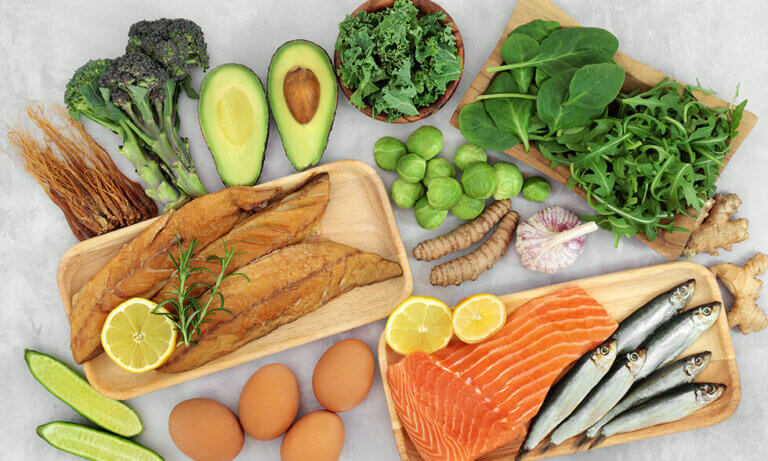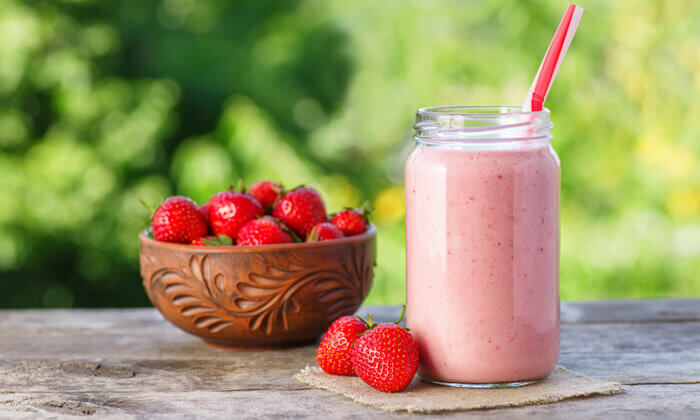10 Delicious Anti-Inflammatory Foods to Include in Your Diet
| | Reading Time: 7 minutes

Inflammation is the body’s natural response to injury or illness, but when it becomes chronic, it can lead to serious health issues. The good news is that there are several delicious foods that can help combat inflammation and promote overall well-being. In this article, we will explore ten such anti-inflammatory foods that you can easily incorporate into your diet.
From vibrant berries packed with antioxidants to omega-3-rich oily fish, these foods not only taste great but also have powerful anti-inflammatory properties. We’ll delve into the science behind how these foods work to reduce inflammation and share practical tips for adding them to your meals.
Whether you’re managing a chronic condition like arthritis or simply looking to boost your health, these foods can make a significant difference. By choosing to nourish your body with these anti-inflammatory powerhouses, you’ll not only enjoy delicious meals but also support your overall wellness. So, let’s dive in and explore the diverse range of foods that can help you combat inflammation and promote a healthier lifestyle.
The importance of reducing inflammation in the body
Inflammation is a natural and essential response of the body’s immune system to injury, infection, or irritation. It is a crucial defense mechanism that helps the body heal and protect itself. However, when inflammation becomes chronic or excessive, it can lead to a wide range of health problems. Chronic inflammation has been linked to an increased risk of numerous diseases, including heart disease, cancer, diabetes, Alzheimer’s, and autoimmune disorders.
Uncontrolled inflammation can cause damage to healthy tissues and cells, leading to further inflammation and a vicious cycle. This can result in the development of various health issues, from joint pain and stiffness to gastrointestinal problems and even cognitive decline. Reducing inflammation in the body is, therefore, essential for maintaining overall health and preventing the onset of chronic diseases.
By incorporating anti-inflammatory foods into our diets, we can help to reduce the underlying causes of inflammation and support our body’s natural healing processes. These foods contain a variety of nutrients, antioxidants, and compounds that have been shown to have potent anti-inflammatory properties. In the following sections, we will explore the top 10 anti-inflammatory foods that you can easily incorporate into your daily meals.
Understanding chronic inflammation and its effects on health
Chronic inflammation is a prolonged state of inflammation that can persist for weeks, months, or even years. Unlike acute inflammation, which is a short-term response to injury or infection, chronic inflammation is often caused by lifestyle factors, such as poor diet, lack of exercise, stress, and exposure to environmental toxins.
When the body experiences chronic inflammation, the immune system remains in a constant state of activation, leading to the release of inflammatory chemicals, such as cytokines and prostaglandins. These chemicals can damage healthy cells and tissues, contributing to the development of various health problems. Chronic inflammation has been linked to a wide range of diseases, including:
- Cardiovascular disease: Chronic inflammation can contribute to the buildup of plaque in the arteries, increasing the risk of heart attacks and strokes.
- Type 2 diabetes: Inflammation can impair the body’s ability to regulate blood sugar levels, leading to insulin resistance and the development of type 2 diabetes.
- Certain types of cancer: Chronic inflammation has been associated with an increased risk of certain cancers, such as colon, breast, and prostate cancer.
- Neurodegenerative diseases: Inflammation in the brain has been linked to the development of conditions like Alzheimer’s disease and Parkinson’s disease.
- Autoimmune disorders: Chronic inflammation can cause the immune system to mistakenly attack the body’s own healthy tissues, leading to autoimmune diseases like rheumatoid arthritis, lupus, and multiple sclerosis.
By understanding the negative impacts of chronic inflammation, we can take proactive steps to reduce inflammation in the body and support our overall health and well-being.
Key nutrients and compounds that reduce inflammation
Certain nutrients and compounds found in various foods have been shown to have potent anti-inflammatory properties. These include:
- Antioxidants: Compounds like vitamins C and E, carotenoids, and polyphenols help neutralize harmful free radicals and reduce inflammation.
- Omega-3 fatty acids: These healthy fats, found in foods like fatty fish, walnuts, and flaxseeds, have been shown to reduce inflammation by inhibiting the production of inflammatory chemicals.
- Curcumin: The active compound in turmeric, curcumin has strong anti-inflammatory and antioxidant effects, making it a powerful tool in the fight against chronic inflammation.
- Flavonoids: These plant-based compounds, found in fruits, vegetables, and herbs, possess anti-inflammatory and immune-modulating properties.
- Vitamin D: This essential nutrient has been linked to reduced inflammation and a lower risk of chronic diseases.
- Probiotics: Beneficial gut bacteria can help regulate the immune system and reduce inflammation throughout the body.
By incorporating foods rich in these key nutrients and compounds, you can harness their anti-inflammatory properties and support your overall health. In the following sections, we’ll explore the top 10 anti-inflammatory foods that you can easily add to your diet.
Top 10 anti-inflammatory foods
Incorporating a variety of anti-inflammatory foods into your diet is an effective way to reduce inflammation and promote overall wellness. Here are the top 10 anti-inflammatory foods that you should consider adding to your meals:
Blueberries: A powerful anti-inflammatory superfood
Blueberries are a true superfood when it comes to fighting inflammation. These small, juicy berries are packed with antioxidants, particularly a class of compounds called anthocyanins, which have been shown to have potent anti-inflammatory properties. Blueberries contain high levels of vitamins C and E, as well as the mineral manganese, all of which contribute to their anti-inflammatory effects.
Research has demonstrated that the regular consumption of blueberries can help reduce inflammation markers in the body, such as C-reactive protein (CRP) and interleukin-6 (IL-6). These anti-inflammatory benefits have been linked to a reduced risk of chronic diseases, including heart disease, cancer, and neurodegenerative conditions. Blueberries are also a great source of dietary fiber, which can support digestive health and further contribute to overall well-being.
To incorporate more blueberries into your diet, try adding them to your morning smoothie, sprinkling them on top of your yogurt or oatmeal, or enjoying them as a healthy snack throughout the day. You can also use blueberries in baked goods, salads, and even savory dishes to take advantage of their delicious flavor and impressive anti-inflammatory properties.
Turmeric: The golden spice with potent anti-inflammatory properties
Turmeric, the vibrant yellow spice commonly used in Indian and Southeast Asian cuisine, is renowned for its powerful anti-inflammatory properties. The secret lies in its active compound, curcumin, which has been extensively studied for its ability to reduce inflammation in the body.
Curcumin has been shown to inhibit the production of inflammatory enzymes and cytokines, as well as to suppress the activation of key inflammatory pathways. This makes turmeric a valuable tool in the management of various inflammatory conditions, such as arthritis, inflammatory bowel disease, and even certain types of cancer.
In addition to its anti-inflammatory benefits, turmeric is also a potent antioxidant, helping to neutralize harmful free radicals and protect cells from oxidative stress. This combination of anti-inflammatory and antioxidant properties makes turmeric a versatile and beneficial addition to any diet.
To incorporate more turmeric into your meals, try adding it to curries, stir-fries, soups, and rice dishes. You can also make a refreshing turmeric tea by steeping the spice in hot water and adding a touch of honey or lemon. For maximum absorption, it’s best to consume turmeric with black pepper, as the piperine in black pepper can enhance the bioavailability of curcumin.
Leafy greens: Nutrient-dense and anti-inflammatory
Leafy green vegetables, such as kale, spinach, collard greens, and arugula, are powerhouses when it comes to fighting inflammation. These nutrient-dense greens are rich in antioxidants, including vitamins A, C, and K, as well as various phytochemicals that have been shown to possess anti-inflammatory properties.
Leafy greens are particularly high in carotenoids, such as lutein and zeaxanthin, which have been linked to reduced inflammation and a lower risk of chronic diseases. They also contain substantial amounts of magnesium, a mineral that plays a crucial role in regulating the body’s inflammatory response.
Incorporating more leafy greens into your diet can help reduce inflammation by providing your body with a wide range of essential nutrients and compounds. Try adding them to your salads, smoothies, and stir-fries, or enjoy them as a simple side dish seasoned with herbs, garlic, and a drizzle of olive oil.
Fatty fish: Omega-3-rich seafood for reducing inflammation
Fatty fish, such as salmon, mackerel, sardines, and tuna, are excellent sources of omega-3 fatty acids, which are known for their potent anti-inflammatory effects. Omega-3s, particularly EPA (eicosapentaenoic acid) and DHA (docosahexaenoic acid), have been shown to inhibit the production of inflammatory cytokines and eicosanoids, molecules that contribute to the inflammatory response.
Numerous studies have demonstrated the benefits of incorporating fatty fish into the diet for reducing inflammation and the risk of chronic diseases. For example, regular consumption of omega-3-rich fish has been linked to a lower risk of heart disease, certain types of cancer, and neurodegenerative conditions.
To reap the anti-inflammatory benefits of fatty fish, aim to consume it at least two to three times per week. You can enjoy it grilled, baked, or incorporated into dishes like tacos, stir-fries, or pasta. If you’re not a fan of fish, you can also consider taking a high-quality fish oil supplement to ensure you’re getting enough of these essential omega-3 fatty acids.
Other anti-inflammatory foods to include in your diet
In addition to the top 4 anti-inflammatory foods we’ve discussed, there are several other nutritious options you can incorporate into your diet to help reduce inflammation:
- Nuts and seeds: Almonds, walnuts, chia seeds, and flaxseeds are rich in anti-inflammatory omega-3s, antioxidants, and fiber.
- Avocados: This creamy fruit is packed with monounsaturated fats, vitamins, and antioxidants that can help combat inflammation.
- Ginger: Like turmeric, ginger contains the active compound gingerol, which has been shown to have potent anti-inflammatory properties.
- Broccoli and other cruciferous vegetables: These veggies are rich in sulforaphane, an antioxidant that can help reduce inflammation.
- Green tea: The polyphenols in green tea, particularly epigallocatechin gallate (EGCG), have been linked to anti-inflammatory effects.
- Peppers: Chili peppers and bell peppers contain capsaicin, a compound with anti-inflammatory benefits.
- Garlic: This flavorful herb contains allicin, a sulfur compound with powerful anti-inflammatory properties.
By incorporating a variety of these anti-inflammatory foods into your diet, you can create delicious and nutritious meals that support your overall health and well-being.
Conclusion and incorporating these foods into your daily meals
Reducing inflammation in the body is crucial for maintaining overall health and preventing the onset of chronic diseases. The good news is that there are many delicious, nutrient-rich foods that can help combat inflammation and support your well-being.
From blueberries and turmeric to leafy greens and fatty fish, the 10 anti-inflammatory foods we’ve explored in this article offer a diverse range of flavors, textures, and health benefits. By incorporating these foods into your daily meals, you can nourish your body with essential vitamins, minerals, antioxidants, and anti-inflammatory compounds that can help reduce inflammation and promote optimal health.
To get started, try incorporating these anti-inflammatory foods into your meals and snacks in creative and flavorful ways. For example, you could start your day with a blueberry-spinach smoothie, enjoy a grilled salmon salad for lunch, and finish the day with a turmeric-infused curry or stir-fry. You can also experiment with new recipes and flavor combinations to keep your meals interesting and satisfying.
Remember, a balanced and varied diet that emphasizes these anti-inflammatory powerhouses is the key to reducing inflammation and supporting your overall well-being. By making these nutritious foods a regular part of your lifestyle, you’ll be taking an important step towards a healthier, more vibrant you.


